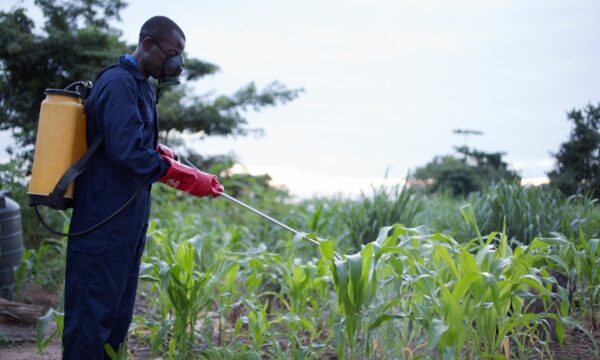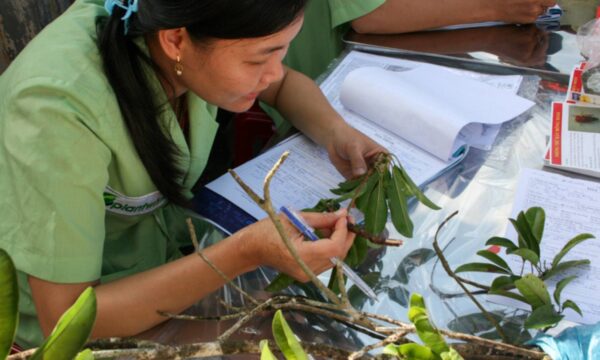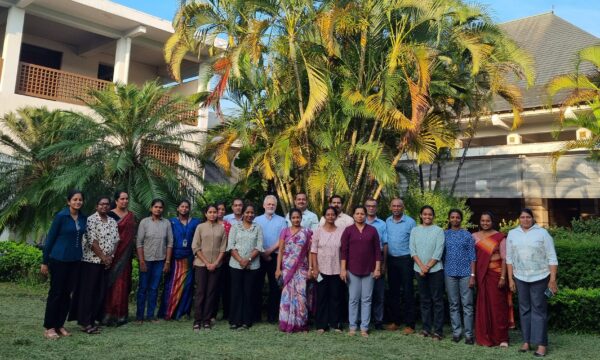Swagata Saikia, a PhD Scholar in Plant Pathology, recently participated in a Plant Doctor training course. Here Swagata talks about her experiences during the course.
One fine day, I arrived at the Regional Agricultural Research Station (RARS), Titabor, along with five of my friends for a training course entitled “Becoming a Plant Doctor”. Other PhD students, Junior scientists, Subject Matter Specialists and Plant Protection Officers joined us all with the goal of becoming Plant Doctors.
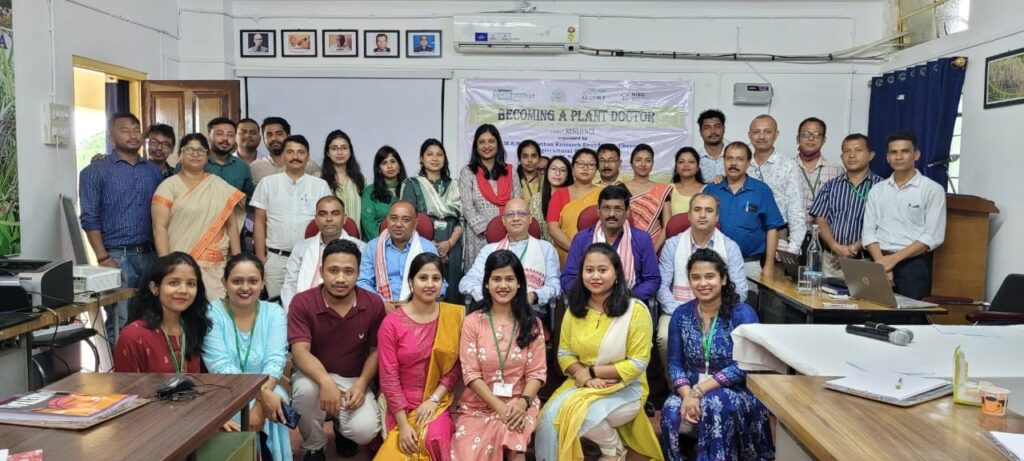
About Plant Doctors
Plant doctors, also known as agricultural extension workers, help farmers struggling with plant pests and diseases by providing practical plant health advice. They are vital for communicating science-based solutions to plant-health problems with communities, enabling farmers to lose less of what they grow.
The course, run by master trainers from MS Swaminathan Research Foundation (MSSRF) and CAB International (CABI), gave participants an overall understanding of Plant Health Systems (PHS) and the Plantwise programme, a global initiative led by CABI.
Topics covered
The experts shared their knowledge and experience on a range of plant health topics, including symptoms – both biotic and abiotic. They also covered the principles of Integrated Pest Management (IPM) for managing these pests and what resources are available on the Plantwise Knowledge Bank. In addition, they showcased the Plantwise Data Collection App’s electronic prescription sheet.
During the course, demo plant clinics provided the opportunity for hands-on training in how plant clinics operate. This allowed us to better understand the problems faced by farmers, their motivations and practices, as well as how to gain their trust. The demo clinics also gave us an idea of the type of plant health issues we are likely to face, and how Plant Doctors help by providing timely advice when shown samples of damaged crops.
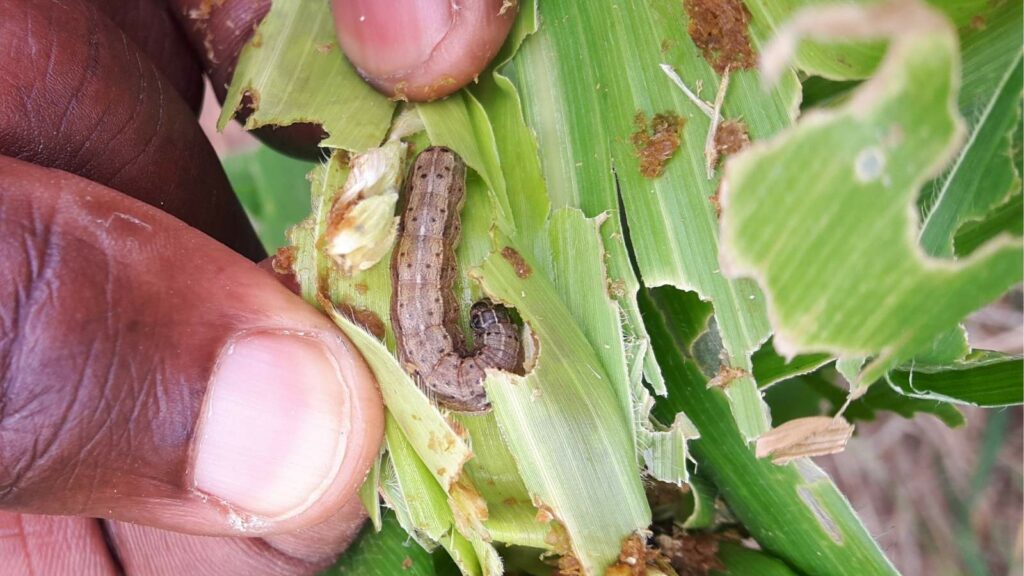
Diagnosis and management
I and the other students saw how, after diagnosing an issue farmers receive advice on how best to manage the problem. This includes information on where to buy the needed inputs to address specific issues. The course emphasised the use of non-chemical measures, such as biopesticides and biocontrols, rather than hazardous chemicals.
It was also impressive to see pests under the hand-held USB microscope, also known as computer microscopes or computer-connected microscopes. The hand-held microscopes can be plugged into a USB port on a computer or television, allowing users to examine plant samples via a computer monitor or television screen. They are easy to use, portable and enable the farmer to see the cause of the symptoms on the spot. Moreover, Plant Doctors often use the technology when they cannot diagnose a problem then and there, as they can save and share pictures and videos with other plant doctors and experts.
During the course, we were also introduced to the world of data sciences with platforms like Plantwise Online Management System (POMS), its factsheets and Plantwise Diagnostic Field Guide, which serve as reference materials for pest and disease diagnosis.
Plant Doctor’s role in helping farmers
Encouraged by these experiences, myself and the other students finished the course feeling motivated to become plant doctors and help expand the reach of plant clinics. The organiser’s primary goal was to unravel detailed insights about plant clinics and their role in helping farmers lose less of their crops to pests and diseases. I gained a great deal of fundamental knowledge, which will surely add to my understanding and help reduce farmers’ losses and enhance their productivity.
I’m grateful to the organizers for giving me the opportunity to train as a Plant Doctor!
About Swagata Saikia
Swagata Saikia is a Ph.D. Scholar in the Department of Plant Pathology at Assam Agricultural University, Jorhat. She has almost 6 years of experience in the field of Plant Pathology with specialisation in Biocontrol aspects and Data Sciences. She is also serving as a Junior Research Fellow for the Scheme National Agricultural Higher Education Project (NAHEP) which has the objective “Production and Sale of Biopesticides”. Swagata hopes to contribute much more to the scientific community, with the integration of humans and machines together in the near future. She hopes to contribute to bringing changes to farmers for quick and easy solutions to lessen their losses.
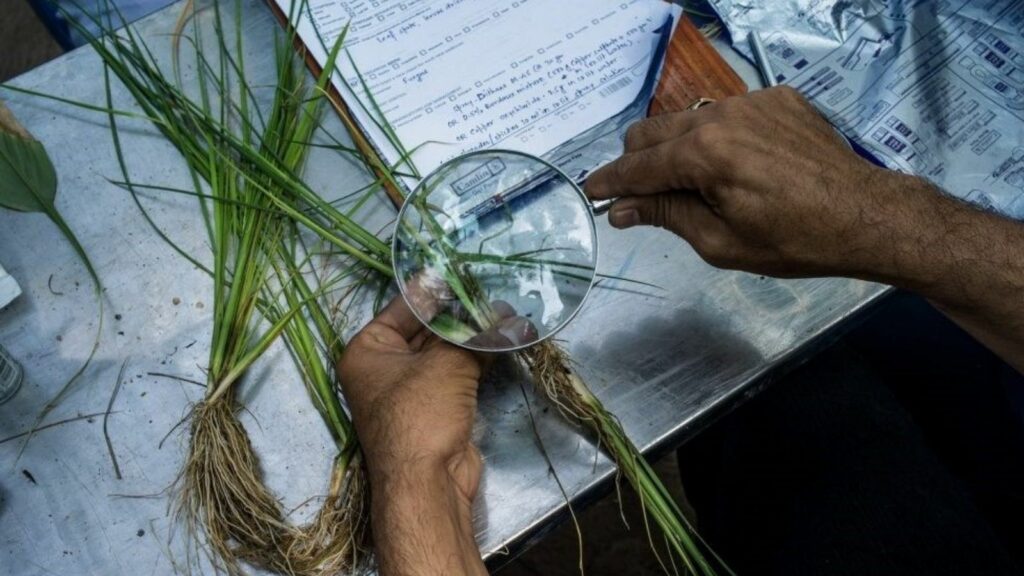
About Plant Doctor training
Plant Doctor training is part of CABI’s global Plantwise programme. This training, organized under “The Climate Resilience project”, is being implemented in Assam and Odisha states (India) with the funding support of the Ministry of Foreign Affairs, Norway/ the Norwegian Embassy, New Delhi, India.
The overall goal of the project is to improve agricultural productivity, adaptive capacity and livelihoods of smallholders to climate and economic changes by building resilience and strengthening the agri-product market value chains. Assam Agricultural University (AAU), M S Swaminathan Research Foundation (MSSRF), International Water Management Institute (IWMI), Orissa University of Agriculture and Technology (OUAT), Indian Council of Agricultural Research – National Rice Research Institute, (ICAR-NRRI), Norwegian Institute of Bioeconomy Research, (NIBIO), Norway are the partners in this project.
Efforts are being taken to upscale the proven Climate Smart Agriculture (CSA) Technologies demonstrated in the project area through the Agriculture Research Centers (KVK). In Assam, efforts are being taken to upscale the CSA in 10 KVKs through the VKC and ICT platforms. The partners and the framers realized the Plant Clinic is one of the important interventions to address the plant health issues of the farmers. Hence, the plant clinic programme is being incorporated as one of the essential components in the upscaling initiatives. The Plant clinic sessions and the Plant Doctor training (Module 1 and 2) were conducted with 25 scientists of KVKs and AAU Research Stations.
Related News & Blogs
How do pest risk registers address the spread of plant pests in Africa?
Pest risk registers can help to solve problems in agriculture, addressing the growing global threat of plant pests. Moreover, changing weather patterns, led by rising temperatures, are causing them to reproduce faster and expand into new regions. In ad…
10 July 2025

